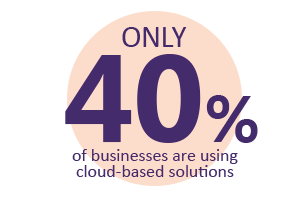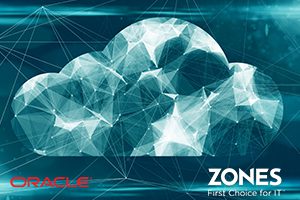Find out how our Oracle services can bolster your business
Preparing your enterprise for a major software migration to the cloud can be a daunting task for anyone. There are definitely benefits to be had, but...

It’s been well publicized that the cost of cybercrime continues to grow at an exponential rate. Cyberattacks have seemingly gone from an occasional high-visibility newsworthy event to a regular occurrence. Some make the headlines, some don’t, but they all come at a pretty steep price. To most businesses, the costs can include operational remediation, notification, lost employee productivity, loss of intellectual property, and forensics investigations – but perhaps most importantly, there can be significant reputation or brand damage, which translates to losing business.
Nowhere is this more evident than here in the United States. According to the latest “Cost of a Data Breach” report from the Ponemon Institute, the average data breach worldwide in 2019 costs the business $3.92 million. In the US specifically, that figure is far higher: $8.19 million. Clearly, the stakes are high, and corporate IT departments need to do more with their limited budgets to protect against the significant downside.
There’s a difficult question that arises for many IT leaders, though – how, specifically, will they invest their cybersecurity budgets? Should they spread the dollars around, buying one solution from vendor A, another from vendor B, and a third from vendor C, and figure out how to bring them all together – or should they look to find a one-stop shop where they can support all their security needs?
The answer seems obvious, right? The latter approach seems far easier. But according to a recent Spiceworks study, most companies surprisingly go with the “à la carte” strategy today. A new report entitled “The Future of Network and Endpoint Security” revealed that most are currently using a variety of vendors to meet their needs. However, the report also indicated that 51% of decision-makers would consider going with a single security vendor if that vendor could offer a comprehensive, multi-layered product portfolio.
 So what would this single vendor look like? Unsurprisingly, price is a major factor. Spiceworks found that when asked to name important criteria for choosing a security vendor, 46% of decision makers said that getting a great value for their money was one. However, when you take a closer look, it’s far from the only thing that matters. Spiceworks’ respondents named a number of other factors they consider when looking for a security business partner:
So what would this single vendor look like? Unsurprisingly, price is a major factor. Spiceworks found that when asked to name important criteria for choosing a security vendor, 46% of decision makers said that getting a great value for their money was one. However, when you take a closer look, it’s far from the only thing that matters. Spiceworks’ respondents named a number of other factors they consider when looking for a security business partner:
Not only do organizations want a provider that can deliver all of the above in the present, but they also want one that has the expertise, capacity, and partnerships required to scale for future security needs. Consider this: Spiceworks found that only 40% of businesses are using cloud-based security solutions now, but another 24% say they’re considering adopting them by 2021. With the move to security delivered from the cloud happening that quickly, organizations need a provider that’s already there.
That’s where Zones comes in. We take a comprehensive approach to cybersecurity, leveraging a proven methodology, delivered by security experts across a wide range of technologies from the leading security brands. And we do it all while keeping your bottom line in sight.
The process begins with our Security Assessments, which we use to identify any gaps or vulnerabilities in your current security framework – and from there, we use the results to map out a cost-effective, business outcome-driven plan for reducing risk and improving your overall security posture.
When it comes to Security Fortification, we take a truly holistic approach. Click below, and we’ll give you a full breakdown.

Preparing your enterprise for a major software migration to the cloud can be a daunting task for anyone. There are definitely benefits to be had, but...

Once cloud computing began its rise to prominence as a leading business strategy for data center transformation, it didn’t take long for the...

As we get deeper into 2021, and it becomes clear that employees at many organizations are going to continue working from home for a while longer, IT...